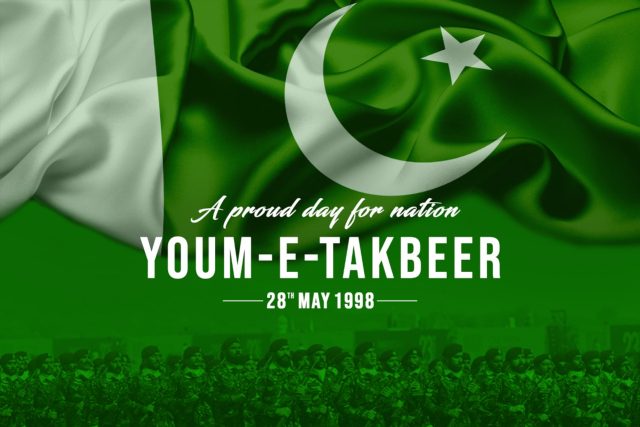ISLAMABAD, Wednesday, May 28, 2025 (WNP): Pakistan on Wednesday commemorated the 27th anniversary of Youm-e-Takbeer—the historic day when the country became the first Muslim nuclear power—by paying rich tributes to the architects of its nuclear programme, reaffirming its doctrine of credible minimum deterrence, and vowing to transform national strength into economic might.
In their messages to the nation, President Asif Ali Zardari and Prime Minister Muhammad Shehbaz Sharif underscored the strategic significance of the nuclear tests conducted on May 28, 1998, highlighting them as a cornerstone of Pakistan’s security doctrine.
President Zardari stated that the decision to become a nuclear power was a “calculated move to ensure peace through strength” and maintain strategic balance in South Asia. Recalling the contributions of Shaheed Zulfikar Ali Bhutto and Mohtarma Benazir Bhutto, he said the achievement was a product of visionary leadership and national unity.
Amid evolving regional threats, the President emphasized Pakistan’s commitment to peace, asserting that the country’s nuclear capability was purely defensive. He cited the recent Operation Bunyan-un-Marsoos as a demonstration of strategic patience and effective response to unprovoked Indian aggression.
Prime Minister Shehbaz Sharif echoed similar sentiments, calling Youm-e-Takbeer a “solemn reminder” of Pakistan’s resolve to defend its sovereignty. Linking the historic achievement to the recent military standoff with India, he said the “joys of Youm-e-Takbeer have further increased” following Pakistan’s successful defence against an “unjustified war imposed by India.”
Reflecting on the 1998 nuclear tests conducted under former Prime Minister Mian Muhammad Nawaz Sharif, the premier lauded the decision to match and surpass India’s nuclear tests as an act of “iron resolve” that defied immense international pressure.
He paid homage to the scientific community, armed forces, and the people of Pakistan, reiterating that Youm-e-Takbeer symbolizes the nation’s unity and resilience. The Prime Minister also urged the country to channel this spirit towards economic transformation and global recognition.
Chairman Senate Syed Yousuf Raza Gilani termed the day a “golden chapter” in Pakistan’s defence history. Acknowledging the roles of Zulfikar Ali Bhutto and Benazir Bhutto, he stressed that the nuclear journey was grounded in strategic foresight and national interest. He called on the youth to understand the peaceful nature of Pakistan’s nuclear doctrine.
Speaker National Assembly Sardar Ayaz Sadiq described May 28 as a watershed moment in Pakistan’s pursuit of strategic autonomy and technological excellence. Praising Nawaz Sharif’s historic leadership, he also commended the armed forces for their decisive action during Operation Bunyan-un-Marsoos, especially under the leadership of Field Marshal General Syed Asim Munir.
He highlighted the interplay of political wisdom, military professionalism, and public unity, adding that national security derives from “cohesion, sacrifice, and the unwavering resolve of the people.”
In a separate statement, the Armed Forces of Pakistan, through the ISPR, congratulated the nation on Youm-e-Takbeer, reaffirming their commitment to defend Pakistan “across the full spectrum of conflict.” The military reiterated that the country’s strategic capability remains a defensive shield and a symbol of peace and national unity.
Calling the nuclear capability a “national trust,” the Armed Forces emphasized their resolve to protect Pakistan’s sovereignty and ensure peace in the region.




